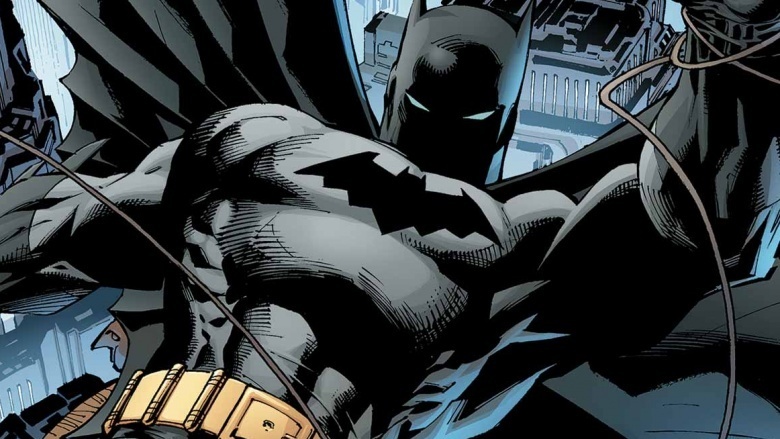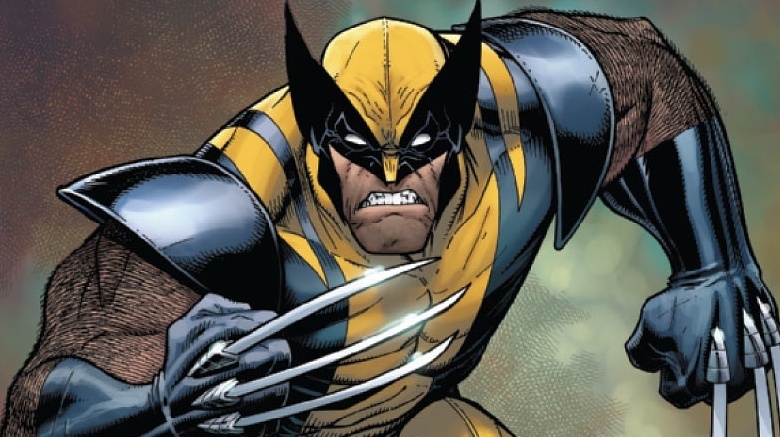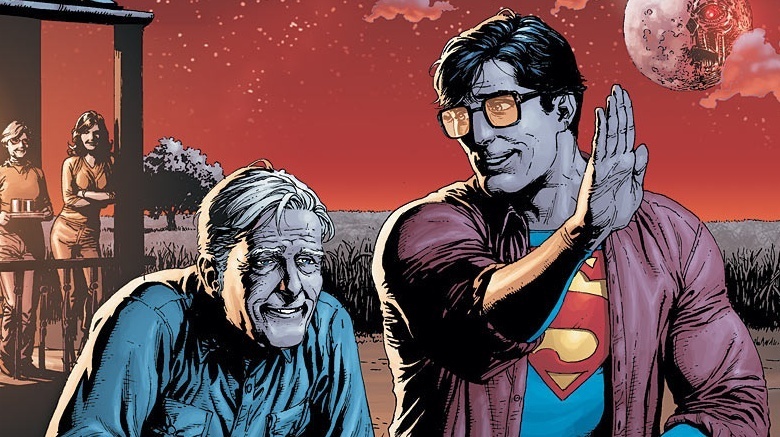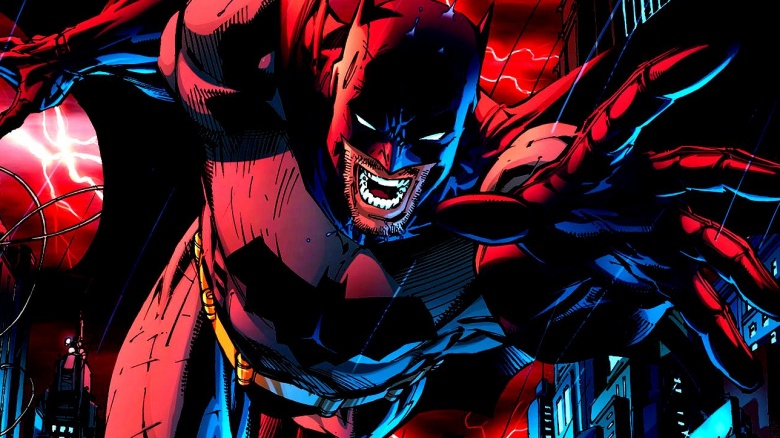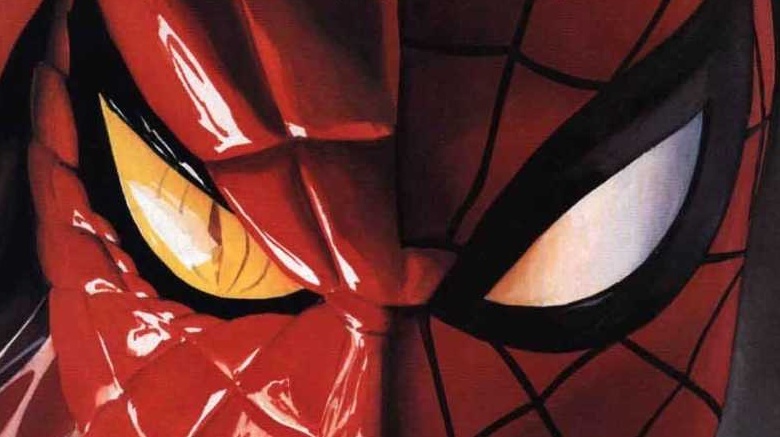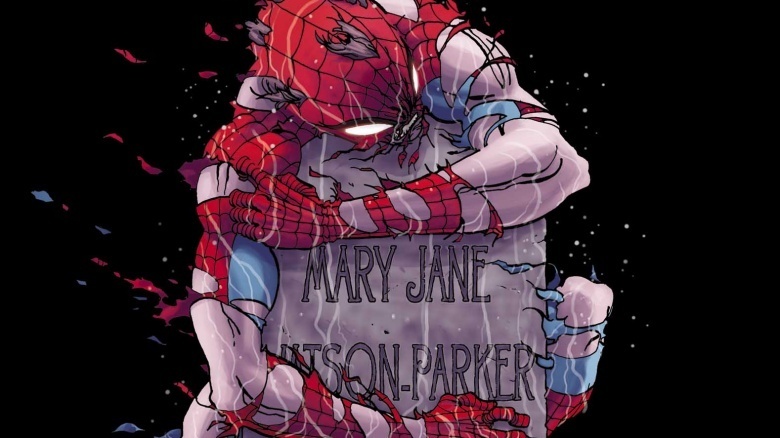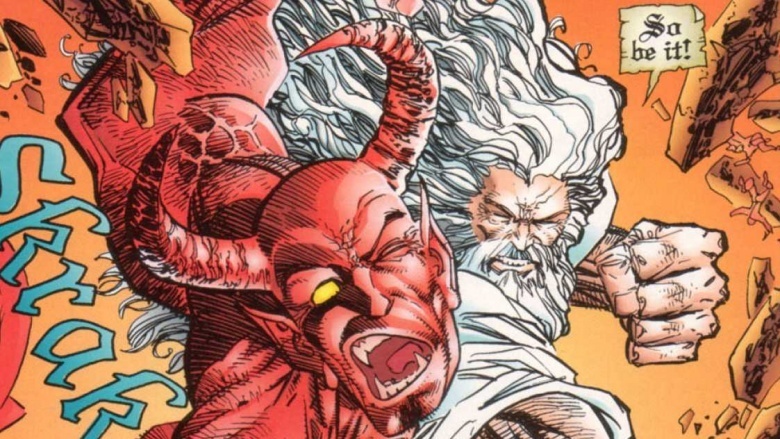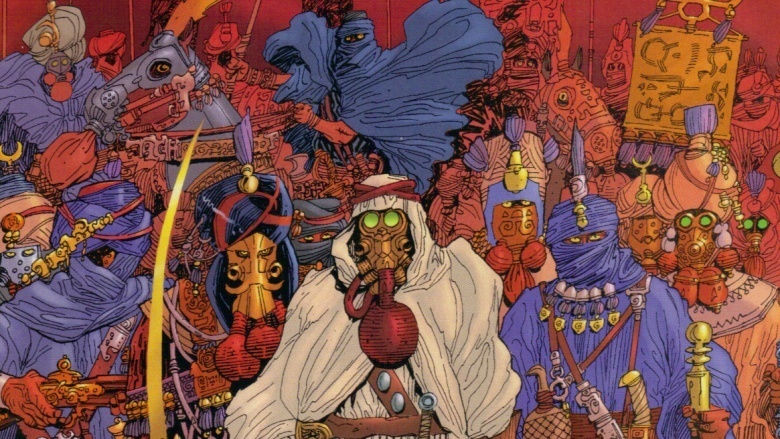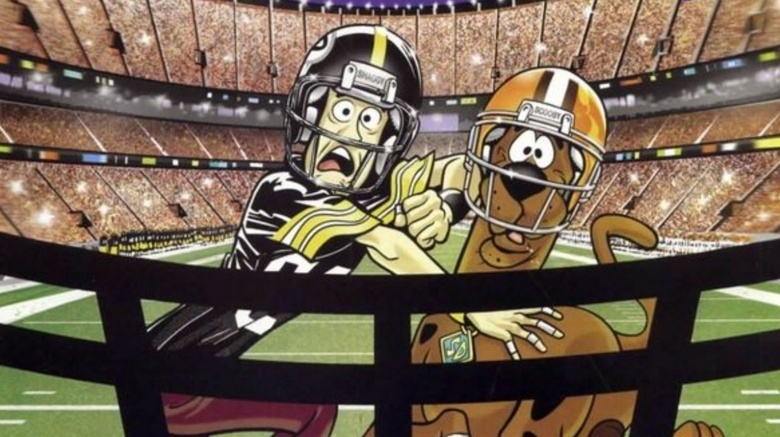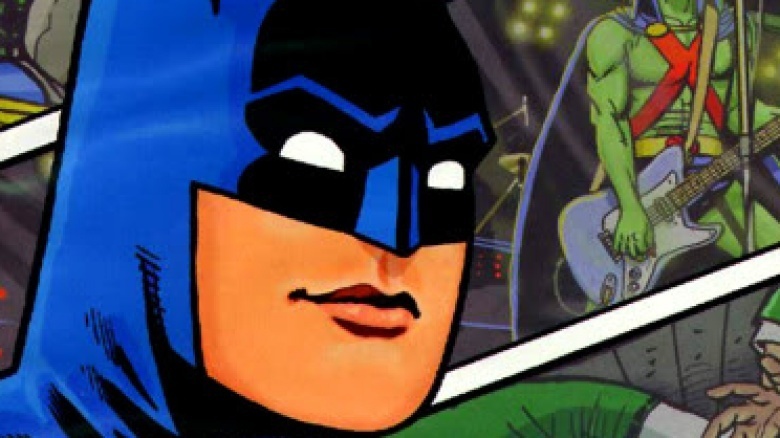Comics Recalled For Scandalous Reasons
The pulpy pages of comic books are often synonymous with ultra-violence, unrealistically stacked bods, and fantastic situations. All of this is par for the superheroic course. Occasionally, however, a comic book accidentally strays into more scandalous territory, and when this happens, publishers scramble to recall and destroy as many issues of the offending comic as possible. Still, a few always escape the culling process and into collectors' hands. Here are a few comics that were recalled for scandalous reasons, so check your closets.
Elektra #3 (2001)
Elektra is one of Marvel's most boring characters. She's died and been resurrected and she's still boring, and she continues to make any comic in which she appears a medically prescribable sedative. Artist Chuck Austen attempted to make Elektra a little more interesting by drawing her nude in a few panels of her own miniseries, since the comic was published under Marvel's mature Marvel Knights imprint. Even though all of her marginally-interesting nudity was obscured by shadows and word bubbles, the issue was recalled and destroyed. To sanitize the issue's provocative panels, Marvel went back in and had a few tiny lines of underpants drawn on, and all was right with the dull world of Elektra.
Wolverine #131 (1998)
Before the Internet was the all-seeing, all-powerful juggernaut that it is today, comic writers and artists transmitted pages for proofing by using the fax machine, which was faster than the post, but still a miserable technological compromise. Because fax machines could only transmit black and white images that looked like someone threw up on a photocopier, writer Todd DeZago's script corrections for Wolverine #131 were mangled in the transmission between himself and the comic's letterer. Because of the unclear fax, the comic's panels described the villain Sabretooth with an anti-Semitic slur instead of the word "killer." Thousands of copies made it into circulation before the error was corrected.
Action Comics #869 (2008)
DC Comics is cool with showing bloody violence, cigar smoking, and women being dismembered and shoved into fridges... but the company draws the line with beer. Action Comics #869 was originally released with an uncharacteristically subdued cover depicting Clark Kent and Pa Kent hanging out by a fence on the family farm and talking about life, holding bottles of something that looks like it says "Crow Root Beer." That's as charmingly Americana as an image can get, right? Unfortunately, DC thought that Superman drinking something that might be seen as beer was too much. They recalled the issue and republished it with bottles that clumsily say "Soda Pop" instead.
All-Star Batman & Robin, The Boy Wonder #10 (2008)
Frank Miller's terribly violent and profane All-Star Batman has its problems, but none were so noteworthy as when issue #10 failed to adequately censor Miller's overuse of unnecessary profanity. Since the comic's moronic heroes drop F-bombs in just about every sentence, the comic had to be censored frequently. However, a printing error with issue #10 made it so that the profanity underlying those many black bars, which was supposed to be completely obscured, was visible to readers. Miller delighted in DC's embarrassing mistake, and the issue was recalled and reprinted with better, darker, less offensive ink.
Universe X Spidey #1 (2001)
When you're a professional artist with a grudge, you have a lot of places to hide your secret revenge messages. Artist Al Milgrom had it in for Marvel's Bob Harras, an editor who had recently left his post at the publisher, so Milgrom decided to celebrate the departure by hiding a secret, scrawly message about Harras on the spines of some books in the background of a scene, spelling out "Harras, Ha Ha He's Gone, Good Riddance to Bad Rubbish, He Was A Nasty S.O.B." The hidden message was discovered, Milgrom was fired (and later re-hired), while the issue was destroyed and republished. Never harass Harras.
Spider-Man: Reign #1 (2006)
Marvel took an interesting glimpse into Spider-Man's possible future in an alternate-reality miniseries that placed the aged hero in a futuristic New York City at the tender old age of 70. One thing that you need to know about Spider-Gramps is that he sleeps in the buff, which is something that the comic's artist decided to depict in all of its lumpy glory. While the single panel of barely-drawn, full-frontal fun wasn't really a big deal, Marvel recalled as many copies as they could and hid Spidey's shame in shadows as best they could.
Savage Dragon #31 (1996)
It's not just the big two publishers who are subject to comic book recalls. Savage Dragon, a comic known for its many inappropriate moments (including a supervillain with extreme flatulence powers named Backfire), recalled an issue because Image Comics missed censoring an F-bomb. The issue, which featured an epic battle between God and Satan on the cover, was republished with a pronouncement of "God is Good" on the cover, and the offending epithet blocked out. Unfortunately, the villain known as Dung still remains, who does exactly what you think.
The League Of Extraordinary Gentlemen #5 (2000)
Alan Moore, a known superhero-hater, couldn't resist publishing a jab at Marvel Comics during his run on the DC Comics-published The League of Extraordinary Gentlemen. Moore's ongoing distrust of comic publishers over creators' rights has caused many publishers to tread carefully around the author, but when Moore included a real, vintage ad for a feminine hygiene product with the name "Marvel" in the pages of his DC-published comic, DC decided to destroy the entire print run to avoid any inter-publisher problems. Moore left DC in a huff soon afterward, disappearing into his wizard beard.
Scooby-Doo Where Are You? #7 (2011)
While the Scooby-Doo recall was also related to Alan Moore, this time it really wasn't his fault. Probably. Somehow, a full-page advertisement for Moore's very mature V for Vendetta comic ended up in the seventh issue of Scooby-Doo. Because DC is very careful to market appropriate comics to the right audiences, the company quickly sent out a notice to destroy all issues of the comic with the offending ad. Even more unusual was the fact that the ad was severely of date, as that particular edition of V for Vendetta was released in 2009, two years earlier than the printing error.
Elseworlds 80-Page Giant (1999)
What's wrong with a baby in a microwave? Nothing, really, if that baby is obviously Kryptonian. Kyle Baker's "Letitia Lerner, Superman's Babysitter," was included in DC Comics' 80-page Elseworlds collection. The short story featured the invincible super-baby facing all manner of certain danger and surviving without any injury whatsoever, despite his oblivious babysitter. The story won an Eisner award, was referenced in The Incredibles, and was republished in DC's Bizarro Comics collection, but the original issue was recalled and destroyed as quickly as DC could manage, deeming the baby-danger too intense or inappropriate for some readers. Sometimes the best comics are just the ones that push the envelope.
